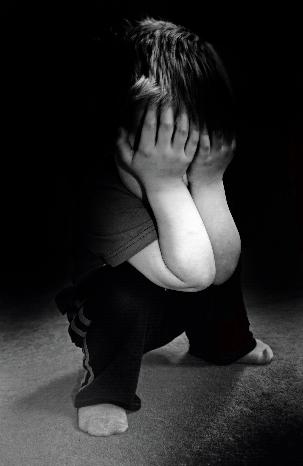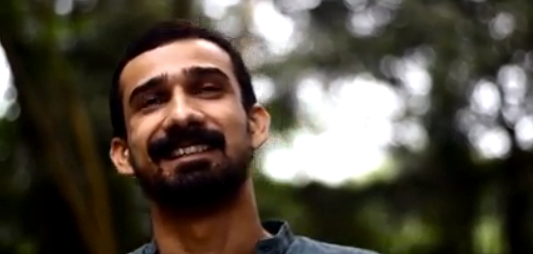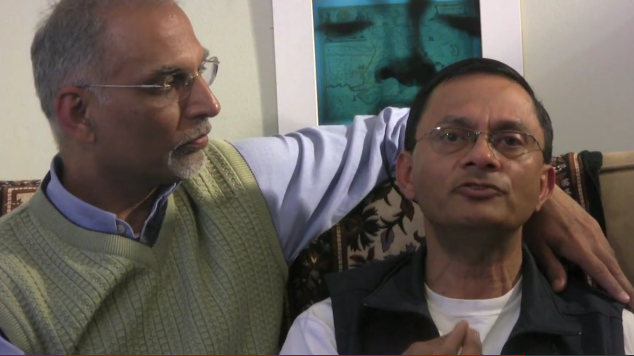A Father’s Response – On Facing Society, Pride, The Marriage Question
A letter on marriage, family, social circles, relatives and a father’s response
Dear Ani,
The letter from Ganesh was really moving. He has expressed his deep thoughts in a very sensitive and sensible manner. As you asked me to pen a response to it as a parent of a gay person, I needed sometime to regroup my thoughts about that moment of ‘crisis’ – yes, it was – in our family life – your coming-out.
It is easy to claim one is a broad-minded and progressive-thinking person, an acknowledged intellectual, a man with no prejudices, and all that. But, when the moment comes, when such a person faces the question of homosexuality (which is actually a simple truth for the science he believes in), the turbulence is unimaginable.
Ani, you and your friends may be interested in learning how actually I felt when you ‘came out’. Of course, there were some casual doubts earlier, but perhaps I had been afraid to ask and encounter the truth. And when you told us you were gay, it was undoubtedly shattering, at least for a brief moment. On hindsight, I feel it was all from the fear of ‘what will the others say?’ – exactly the point raised by Ganesh.
I must say, of course, very clearly, that it was your mother, who immediately took it all in a very healthy and accommodative sense; that is perhaps a mother, even if it is clichéd to say that; and a son is a son, whatever he is.
As for me, as an imagined intellectual, the situation brought a strange soul-searching. Here I am, supposed to be eschewing all prejudices, do I hesitate or am I capable of ignoring, what will the others say – the “four persons’ opinion”, as they colloquially say in Tamil.
It was not a question of accepting or not the different sexual orientation of your son. Not at all. Actually, for a moment, I was reminded of Spencer Tracy character in the Stanley Kramer film, ‘Guess who is coming to Dinner’. How an acknowledged liberal, white man, a supporter of the civil rights moment and a political leader of integration, is shocked when his girl brings her black fiancé home; he is not a charlatan, but is still shaken, wondering ‘why is this happening to me?’, but in a little while he regains balance.
So that was it. It certainly took a little while to stabilize my basic instincts and stand by all my personal convictions – “You know homosexuality is a fact of nature. And your son is always yours, and you have found very little to complain about him on anything; in fact, he has made you to be proud in many occasions. And he needs your love and understanding now more than any other time.” And thus it was alright for me in every sense. Moreover, Ani, with a very understanding mother at home, you have had no problem with parents, as usually faced by many gay persons. But, then I don’t know how can I ever counsel any parent, who generally does not share my convictions on many matters – scientific, social, political etc. I sympathize with anyone who cannot break out of the normal mould to face the situation of facing a gay child. But he will, eventually, as the love of the parent to the son will be powerful enough to surmount any external influences, even the religious ones.
I think in religions that do not unequivocally condemn people to ‘eternal damnation,’ the problem people need to overcome is the importance given to social approval. So it is usually really ‘in the closet’, both for the family and the person. Sometimes others – the ‘four persons’ – will even ignore it and not be downright malicious. There are several such cases, as you are aware. But then, it is the other’s opinion, that stands like the elephant in the room.
In my situation, it was not to be. (I think, I actually asked you – “okay, why should you shout from the housetop that you are gay?”). It did take some time for me to understand this is not to be the case. What do you do when your son is not likely to be ‘in the closet’, but is actually getting on to be an activist and a kind of public voice. Naturally, your basic convictions and your love for your son make you to stand by him. Your mother and I — your mother much more instinctively than me — have and will always stand by you. (Forget the elephant in the room).
For me, there was another funny thought. I had imagined myself in adolescence as a revolutionary – something like a ‘naxalite’ (Please don’t laugh!). Now what shall I do, if I find my son turning out to be rebel hunted by establishment and society. Shall we not stand by our son? Yes, We shall. (I am not trying to say that if I were a conservative, I would have found it difficult to accept a radical son; you accept your son, even if you disagree with his politics or activities.)
All that I am trying to convey, in a very rambling, if not confusing, way is that my wife and I have accepted, without reservations, that our son is gay. Period. (Hear me, elephant! Cant you go away!). But I don’t find myself quite adequate to counsel other parents, who may have different convictions and deep-rooted prejudices. Each family’s and each individual’s case is different. Only your love for your child will guide you to the right path. All that the confused parent has to remember is: the fact that your son or daughter told you that he/she is ‘different’ is a sign of his or her love and need for your support and understanding. After all, who should know if not you? No other minority is asked to hide from their own parents what makes them “different”! (Wait, before somebody points out, I should haste to say that some of these lines and ideas are actually from the web). And always remember, it is not a chosen situation, it is a genetic, biological chance event. Don’t curse why this should happen to you; remember that we have to play the game with whatever cards are dealt us.
The opinion of other people is just an embarrassment in our bourgeoisie society. [Come to think of it, I also happen to be only a ‘closet rebel’ and even my irreligiosity is always submerged! Funny people simply ignore it, even to my consternation!] About the question of dodging the marriage question, asked by Ganesh, there is no way out but by braving it through. Well, my son is not the marrying kind, period – only that can be the parent’s answer to people. I disagree with Ganesh that he is isolating his parents from their social circle and that it is totally unfair to them. No social circle can be avery strong support system in all situations. It is not only for the parent of a gay person that having unmarried son/daughter is a special situation. However difficult it is, the sooner the parents realize and accept their son or daughter is not going to get married, the better it is for all of them. [I shall not bring in my thoughts on gay-marriages in this communication; that can be taken up in a different discussion.]
I am now coming to the best part of Ganesh’s communication, which made me think a lot. I am still thinking. He asks: “I am convinced that, as a loving parent, she had to accept me. But does she really have to feel ‘proud’ about it? Why? and if she does, what is the source of the pride? That I am her son? wouldn’t that be a little phoney?..They accept us because we are their children and they love us, but do we have the right to claim that they should very proud of it?” [Brilliantly put, Ganesh.]
What is it that makes one proud of his or her child? Am I proud of my son because he is an excellent dancer? I am, yes, but what is my privilege in his accomplishment? Would I not be proud of my son if he is not an excellent dancer? The way you are proud of yourself, and the way your mother is proud of you are not the same things, Ganesh. The things that makes you proud (“all that you have gone through”) and the instinct of pride of a mother in her son are in different dimensions; don’t be carried away since both have the same word to describe – “proud”. She will be more proud of you now that you are ‘different’ and thus would need her affection and understanding and she will give them, and that is the expression of her pride. I think my wife can express these ideas much more instinctively and clearly.
Children, let me use a current terminology: you are a special ‘minority’ (the court has also pronounced it). A minority is something that expresses its ‘difference’ from the majority. Alternate sexuality is a case where the ‘minority’ line crosses into the boundaries of the family. Most other minorities have their families as they themselves are – minorities. When people of the ‘majority’ within the family accept and understand the ‘difference’ of the ‘minority’ with them, perhaps it is that what makes them proud. [And I repeat, a different ‘proudness’ than your ‘pride’].
Vasudevan
October 18, 2008
Note: The letter referred to in this mail is here.




![[podcast] Colours of Pride: A Talk on Gender, Sex and Sexuality](https://orinam.net/wp-content/uploads/2020/06/rYMS-panel-768x433.jpg)